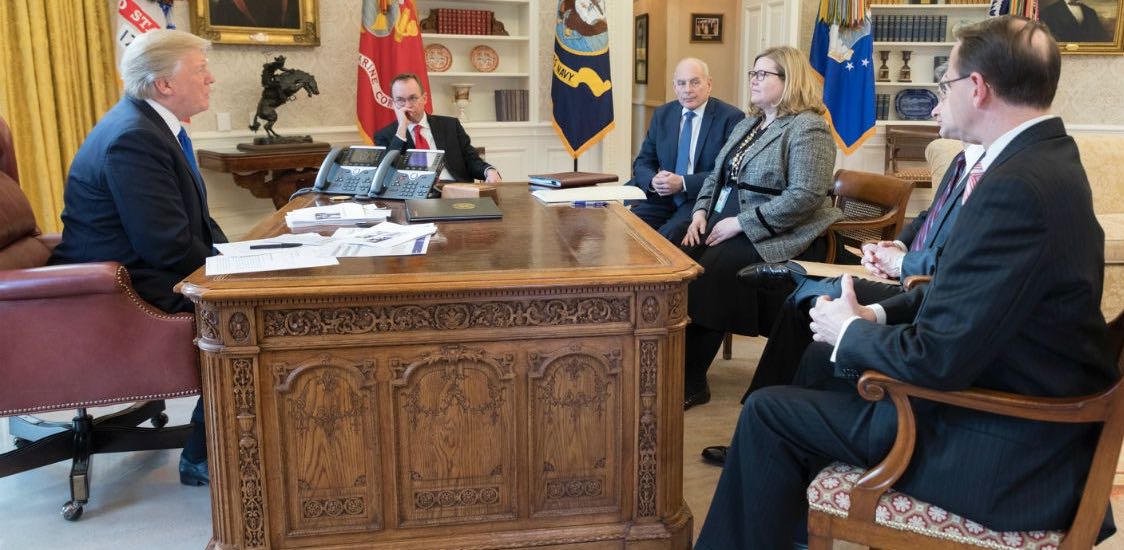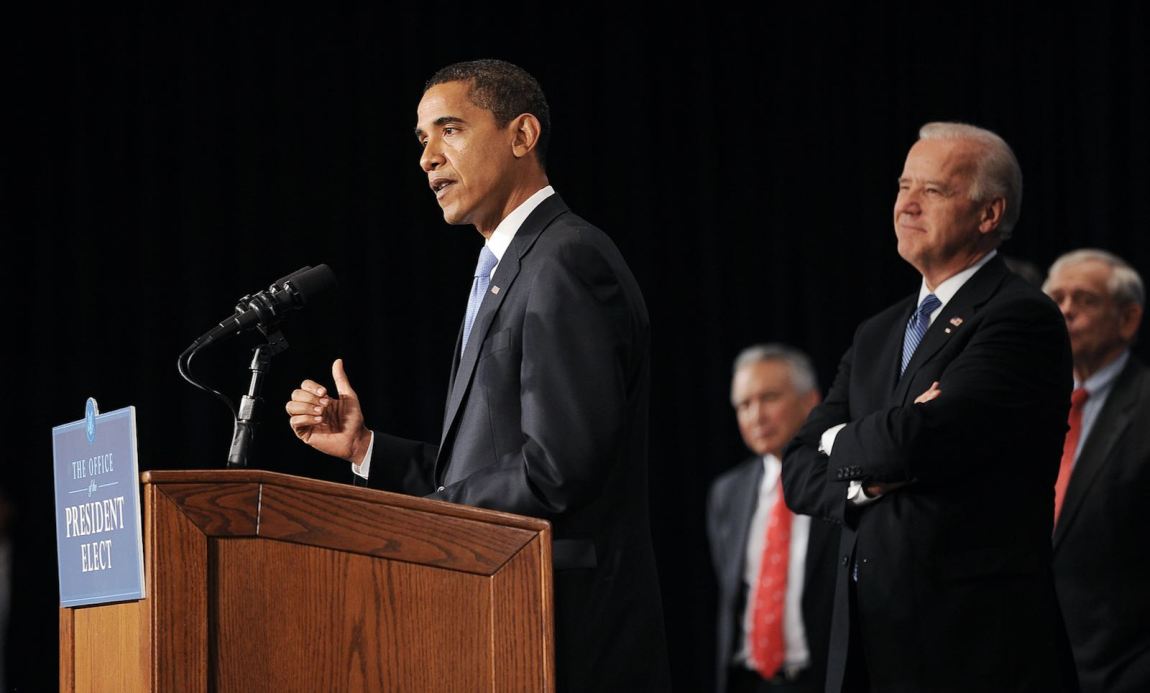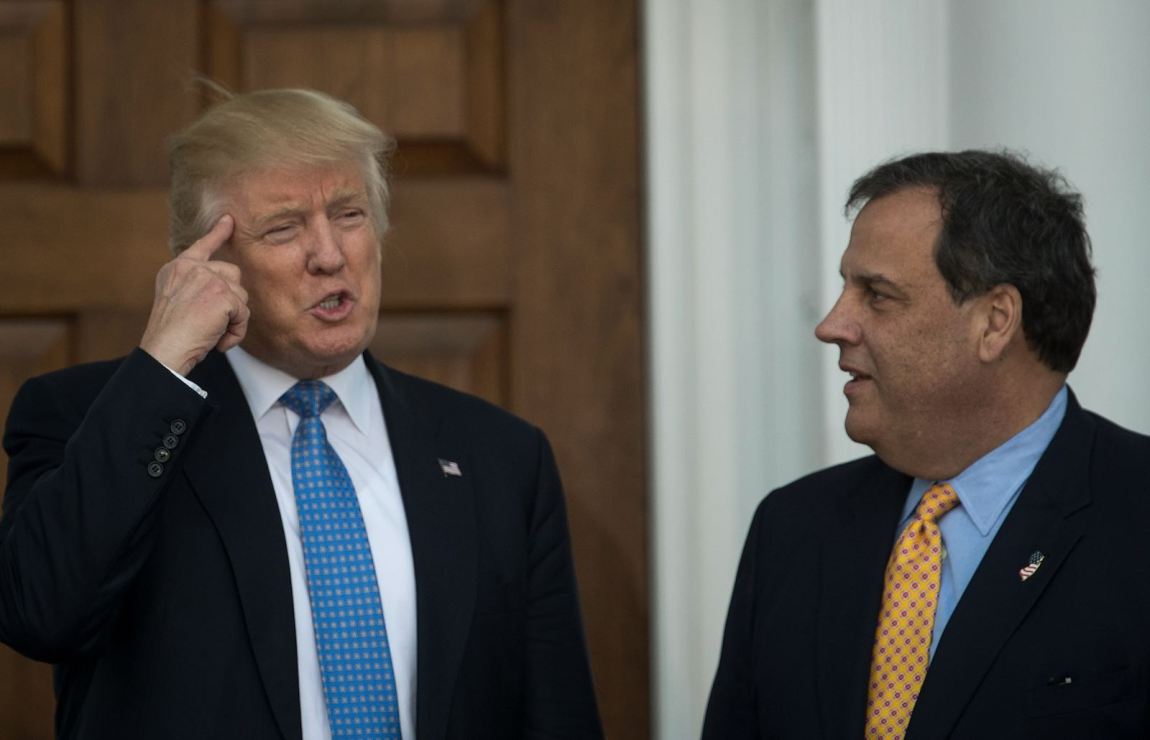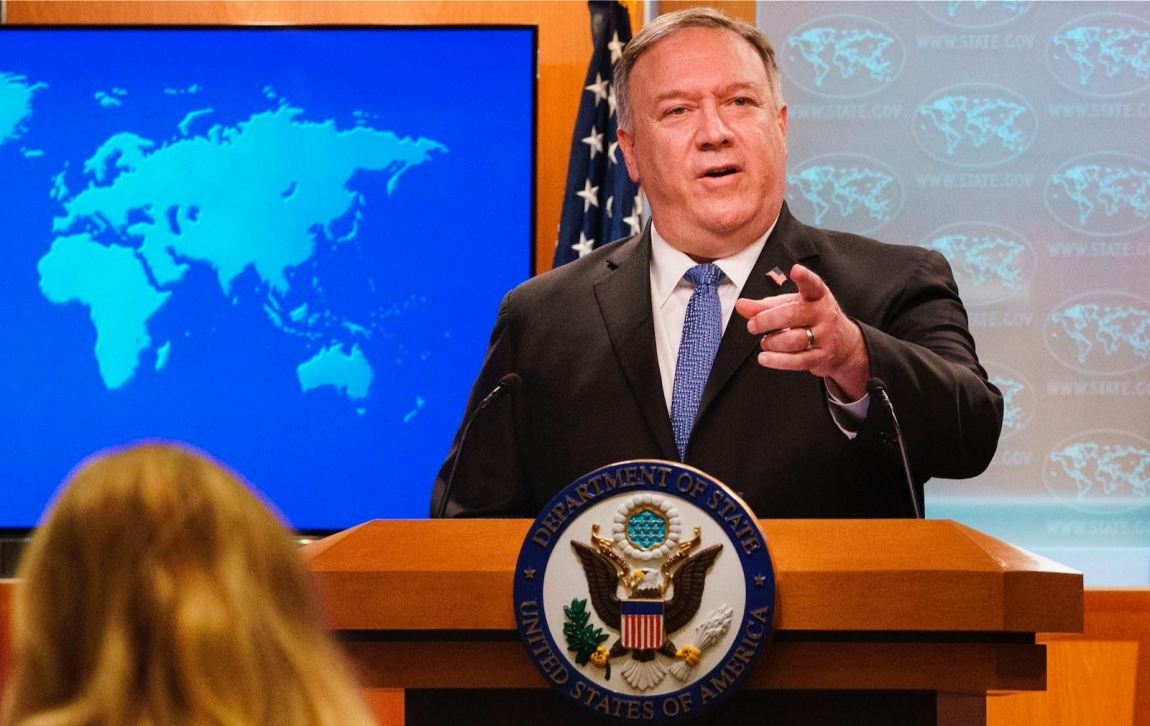Trump’s absurd insistence that he “WON THIS ELECTION, BY A LOT!” is easy enough to ignore. What is harder to ignore is what his appointee who runs the General Services Administration (GSA) is doing. By statute, the GSA’s administrator has responsibility for ascertaining “the apparent successful candidates for the office of President and Vice President.” This crucial ascertainment sets the government’s support for the transition effort in motion. When Congress enacted the transition law and later amended it seven times, it does not appear to have contemplated the risk that a partisan loyalist appointed by a corrupt president would refuse to fulfill this duty when the outcome of the election was clear. Enter GSA Administrator Emily Murphy.
Murphy is refusing to ascertain the apparent winner of the 2020 election as the president who appointed her disputes the clear outcome. She has not been especially transparent about her rationale. A spokesperson for her agency unhelpfully said, “an ascertainment has not yet been made” and “[the] Administrator will continue to abide by, and fulfill, all requirements under the law.” Murphy, it seems, is putting her loyalty to Trump over her duty to the American people.
Much is at stake. The Congressional Research Service has written that “[t]he smooth and orderly transfer of power generally is a notable feature of presidential transitions, and a testament to the legitimacy and durability of the electoral and democratic processes.” Murphy’s misconduct is dangerous.
Her ascertainment is the legally necessary precursor to the government’s assistance to the Biden-Harris Presidential Transition Team. It releases $6.3 million dollars to the team, which is funded by public and private money; a loan of expanded federal office space and equipment; access to government agencies that will begin sharing information and records about ongoing activities, plans and vulnerabilities; national security briefings for the president; and other support. The New York Times reports that “transition officials said her inaction was preventing Mr. Biden’s teams from moving into government offices, including secure facilities where they can discuss classified information.” The Office of the Director of National Intelligence recently confirmed that it is not providing national security briefings to the president-elect. The Defense Department has also reportedly indicated that it will not meet with the Biden-Harris transition team until Murphy formally affirms the apparent winner.
Murphy’s refusal comes as great news to hostile foreign powers. Experts have cautioned that authoritarian governments see a benefit in having public confidence in democracy undermined. But one of Trump’s own former national security experts, Fiona Hill, has warned: “The biggest risk to this election is not the Russians, it’s us.” Four former Secretaries of Homeland Security, Republican and Democratic (Tom Ridge, Michael Chertoff, Janet Napolitano, and Jeh Johnson), have now called on Murphy to issue the ascertainment of an apparent winner of the election, counseling: “At this period of heightened risk for our nation, we do not have a single day to spare to begin the transition. For the good of the nation, we must start now.”
*
For the good of the nation, it was once done differently. I was present on November 5, 2008, the day after the election, when tired but elated Obama transition team members met with Bush administration officials at the headquarters of the GSA, which leads the transition for the government. Far from being sullen about their party’s loss, the Bush appointees greeted the Obama-Biden transition team warmly. They discussed the extensive preparations they had made under the leadership of the Executive Office of the President’s deputy director for management, Clay Johnson. They emphasized their commitment to ensuring the most effective transition in history. Then, one of them—I forget who—said something that would be unthinkable now in 2020: he said the Bush administration wanted to make it “the nicest transition in history.”
Officially, the transition ended on January 20, 2009, but the real work of standing up a new administration continued for the Office of Government Ethics (OGE) through the rest of that year and into January 2010. I was the OGE’s deputy general counsel at the time. Our job was to review financial disclosures of the incoming administration’s nominees for positions requiring Senate confirmation and craft ethics agreements to resolve their conflicts of interest. That work surges dramatically when a new president is elected and begins filling positions vacated by the last administration’s political appointees. For the OGE and the new White House, the transition was really a year-long process.
When it was over, we took stock of what had worked and what had not; then we set about making improvements in anticipation of the next transition. In 2012, we met with the Romney campaign, which had prioritized transition preparedness and assembled an impressive team called the Romney Readiness Project. He did not win, but we still reviewed our efforts to prepare for that potential presidential transition. We spent the next four years making further improvements.
Advertisement
I testified about these efforts before the House in December 2015, during a hearing ostensibly to reauthorize the OGE. Unfortunately, Jason Chaffetz, Republican of Utah and then-chairman of the House Oversight Committee, was interested only in pursuing a disingenuous effort to dig up dirt on Hillary Clinton. It became clear the hearing had been a ruse to give Chaffetz a chance to cast doubt on the legitimacy of financial disclosures Clinton had filed as secretary of state. His line of questioning implied that the OGE had given her a pass on disclosing paid speeches former President Bill Clinton gave as an agent of the Clinton Foundation. My agency had done no such thing, as I pointed out in written responses to follow-up questions he sent the OGE.
Ultimately, Chaffetz dropped the issue. But today I find myself wondering if his behavior was one of many warning signs of the trouble that has arisen in the 2020 transition. Was he representative of a broader shift in attitude among Republican leaders toward our American tradition of peaceful transfers of power? Late in 2016, when it looked as though Clinton would win the election, Chaffetz issued a taunt in an interview, “Even before we get to Day One, we’ve got two years’ worth of material already lined up.” A week before election day, Senator Ron Johnson, Republican of Wisconsin declared that Clinton could be impeached if she won. Republican Rep. Mo Brooks also raised the idea of impeachment, as did other Republicans, including Rep. Michael McCaul, Rep. James Sensenbrenner, Rep. Peter King, and Rep. Louie Gohmert.
President Obama warned against normalizing this disruptive talk, asking, “How does our democracy function like that?” How, indeed.
*
Murphy has a sordid history in the Trump administration. As I recounted in my July 2 piece for the Review, she cancelled a long-planned relocation of the FBI’s headquarters in Washington, D.C. Circumstances suggest she may have been satisfying a desire on the part of President Trump to avoid opening real estate near his Washington, D.C., hotel that a competing hotel could acquire. Trump leases the government’s Old Post Office building from Murphy’s agency for his hotel, which sits less than a block from the J. Edgar Hoover building that houses FBI headquarters.
Murphy has declined to discuss a meeting with President Trump at the White House shortly before the cancellation. She refused to answer questions about it posed by the GSA’s inspector general, who noted that her testimony in an April 2018 hearing before Congress may have “left the misleading impression that she had no discussions with the President or senior White House officials in the decision-making process about the project.”
Murphy also appears to have been complicit in President Trump’s assault on the civil service, which he calls the “deep state.” As I previously wrote, laws and regulations protecting public servants against arbitrary firing by political masters guard us all against the establishment of a loyalist federal workforce willing to carry out a corrupt leader’s schemes. Due process protections, including the right to appeal firings before an independent review board, free most career-level public servants to report fraud, waste, and abuse to inspectors general and to reject unlawful orders.
This arrangement is inconvenient for a president with authoritarian designs and a goal of self-enrichment. One line of attack against the civil service by the Trump administration was to propose that Congress subsume the Office of Personnel Management (OPM), which oversees civil service protections, into the GSA. The proposal made no sense because the OPM’s work is unrelated to the GSA’s mission of managing federal real estate holdings, government vehicles, and procurement services. But a crucial detail of the proposed merger was that the OPM’s authority to issue civil service regulations would be pulled into the Executive Office of the President, where political appointees could exercise more direct control over civil service protections.
In April 2020, four Democratic members of the House of Representatives demanded that Murphy answer questions about her role in this effort. Murphy had rescinded two delegations that authorized the OPM to manage its own buildings in Washington, D.C., and Charlottesville, Virginia—a move the members predicted would cause OPM to incur $2 million in additional expenses. They accused her of trying to undermine OPM’s viability as a separate agency: “Your decision to rescind OPM’s authority is directly tied to the Trump Administration’s plan to abolish OPM and move its component parts to GSA.” The problem, they pointed out, is that this action violated a law they had enacted that winter to prevent the Trump administration from transferring functions between the two agencies. “It appears you withheld critical information from Congress and continued to take actions prohibited by statute, demonstrating a flagrant disregard for congressional authority and the law.”
Advertisement
Later that month, Carolyn Maloney, Democrat of New York, who now chairs the House Oversight Committee, accused Murphy of refusing to turn over records the committee had requested. “GSA’s blanket refusal to provide the requested material disregards past agency practice and hampers the Committee’s ability to conduct legitimate oversight of matters well within its jurisdiction,” the chairwoman wrote.
In April 2020, Murphy gave an interview remotely from home about the government’s response to the coronavirus pandemic. When asked about her own life during the pandemic, Murphy said she was combatting the feeling that the “walls seem[ed] to be closing in” on her by working, walking her dogs, joining in “virtual brunches and happy hours with friends and colleagues,” and engaging in other activities. One comment she made now seems ironic: “During a crisis you can’t get stuck in a paralysis trying to wait for all the information. You need to make the best decisions you can with the information you have at hand.”
Cardozo Law professor Kate Shaw and co-editor of Just Security Ryan Goodman, have pointed out that the blame rests not only with Murphy but also with President Trump, who holds her and other appointees on a tight leash. They emphasize that “responsibility also lies with those of his closest advisors and Republican leaders who have yet to urge the president to concede, or have appeared to credit the President’s baseless fraud allegations.” They are right to blame Trump and his Republican allies. He has gone so far as to direct agency heads not to cooperate with the Biden-Harris Presidential Transition Team.
Shaw and Goodman remind us that, though it is true that a former GSA administrator delayed the 2000 transition, “initially claiming it was because neither candidate had conceded, and later pointing to pending litigation,” that administrator “was roundly criticized for those positions.”
It is also true that the dispute over the 2000 election arose under very different circumstances. Two former chiefs of staff to Presidents Clinton and Bush, John Podesta and Andy Card, recently teamed up to write an opinion piece as two veterans who were “on opposing ends of the historic Bush v. Gore dispute in Florida in 2000.” This election is nothing like that one, they observe. In 2000, the parties were nearly tied and the outcome of the vote in Florida would decide who became president. In the end, President Bush won by a margin of only 537 votes in that state.
In 2020, President Trump trails by a wide margin in both the popular vote and the Electoral College. Biden leads by over 50,000 votes in the crucial battleground state of Pennsylvania. Trump’s arguments about the illegitimacy of the election are a nonsensical muddle unsupported by evidence. He will lose his pending legal challenges. He has lost the election.
Two factors may help lessen the potentially devastating impact of Murphy’s assault on the republic. First, President-elect Biden possesses something President Trump lacks: faith in experts. Second, the government learned a hard lesson from the delayed 2000 transition. The delay in the GSA’s ascertainment made that transition a brutal experience. The memory of that experience has led the government to improve its transition processes since then. The time from election to inauguration is just a little over ten weeks, and the loss of thirty-seven days at the beginning of the transition as the candidates fought over the close Florida results was a costly setback. When I first joined the OGE, in October 2001, it was clear the experience of that transition had taken a toll on the OGE’s staff. It had taken a toll on the White House, too.
*
The presidential transition has been a creature of statute ever since March 4, 1964, when Congress passed the Presidential Transition Act—the same law that assigned to the GSA administrator the task of certifying the election’s apparent result to allow the process to begin. In the first paragraph of that law, Congress warned: “Any disruption occasioned by the transfer of the executive power could produce results detrimental to the safety and well-being of the United States and its people.”
Disruption has been a hallmark of this administration from start to finish. In September 2017, the Government Accountability Office issued a report on a performance audit it conducted regarding the Trump transition effort. Possibly out of embarrassment, the White House “did not respond to requests for an interview.” (I also recounted my memories of the disastrous Trump transition in my earlier piece for the Review.) Trump’s effort went off the rails when then President-elect Trump fired his transition team immediately after the election. What he lost with that firing was the expertise of a team the nonprofit Partnership for Public Service had spent half a year training, with help from numerous agencies and former top officials spanning several presidential administrations.
Always eager to find a scapegoat for their mistakes, members of the Trump administration repeatedly accused the OGE and agency ethics officials of moving slowly. More than once, I warned the White House counsel’s office that I would release statistics showing the speed of our work if they continued to spread this false narrative. More than once, I made good on that promise.
Now, on his way out of office, President Trump is trying to trip up President-elect Biden’s transition team. Expertise will carry the Biden-Harris transition team for a while, but there are limits to what can be done without the government’s cooperation if Murphy remains obstinate. If Republicans care about America, they will want to ensure the incoming administration is equipped to protect us all as the deadly pandemic rages, the economy continues to suffer, and the nation’s enemies look for ways to exploit our vulnerability during the transition.
At this point, it is difficult to imagine Republican leaders repeating the words of the Bush administration official who offered the “nicest” transition in history. But we must hope they can summon enough patriotism to emulate the example of another disappointed presidential candidate, Senator John McCain. His gracious 2008 concession speech is ringing out again in video clips on social media: “These are difficult times for our country, and I pledge to [President-elect Obama] tonight to do all in my power to help him lead us through the many challenges we face. I urge all Americans who supported me to join me in not just congratulating him but offering our next president our good will and earnest effort to find ways to come together.”
President-elect Biden has modeled that patriotism, as well. In a stark contrast to Trump’s belligerent behavior, Biden told Americans: “I pledge to be a president who seeks not to divide, but unify. Who doesn’t see red and blue states, only sees a United States. And work with all my heart to win the confidence of the whole people.” It is not yet too late for Republican leaders to join him in this effort to heal and unify.
But soon, if Emily Murphy does not fulfill her duty, she could cost our nation dearly. How much harm she could inflict on Americans is impossible to predict.






